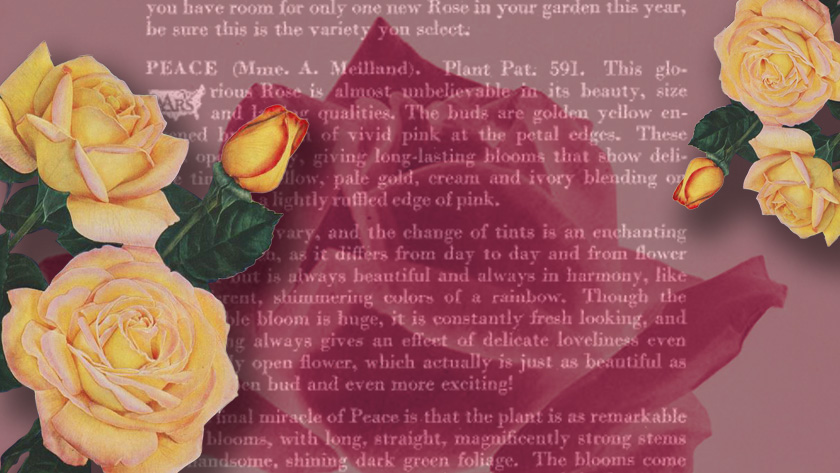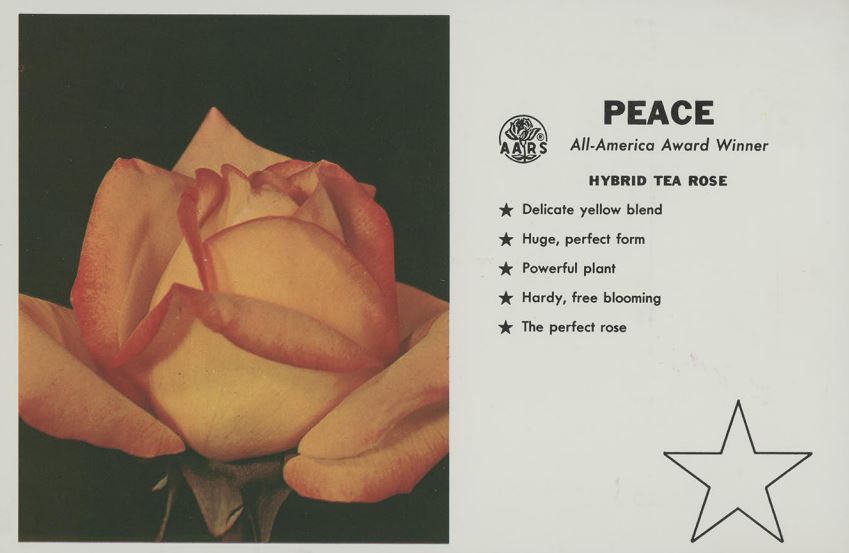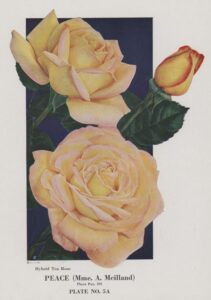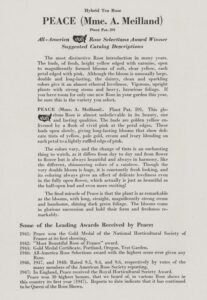
Sowing Seeds of Peace: The Conard-Pyle Company Records
By David Cardillo, Digital Initiatives and Preservation
As the state of Delaware was once rather agrarian—and the southern portion still is—it may come as no surprise that the University of Delaware Library, Museums and Press has a rather healthy number of resources on horticulture and cultivation in our collections.
One of those resources is the Conard-Pyle Company Records, a collection of materials related to the influential nursery company that grew from a small-scale retail business to an influential wholesaler. With materials related to patents and licensing, marketing and advertising, and financial and legal records, the collection provides researchers with a unique look at the activities of a large-scale plant nursery in the 20th century.
The Conard-Pyle Company specialized in the cultivation and hybridization of roses, including the patented and world-famous Peace Rose. Within the collection, you will find digitized resources, like Part 1 of the Peace Rose Story, that showcase the history of the rose, which was designed for its particular shade of gold and for its hardy nature in colder climates.

Early information card and depiction of the Peace Rose.
As a preview: In 1932, the Conard-Pyle Company entered a partnership with The House of Meilland, the company of French hybridizer Francis Meilland, that would ultimately lead to the creation of the Peace Rose – the rose from which almost every new rose today is a descendent of.
Originally named Mme. A Meilland, the rose was christened “Peace” when unveiled at the American Rose Society meeting on April 29, 1945, in California, because it debuted on the same day that Berlin fell in World War II. When the United Nations met for the first time a few months later, all 49 delegates were gifted a Peace Rose as a symbol of dedication to world peace.
In addition to the history of the Peace Rose, the digitized materials within the Conard-Pyle Company Records include patent documentation, photographs and descriptive narratives about the individual varieties of plant bred or licensed by the company.
Perhaps these resources will inspire those with a green thumb to diversify their own gardens. With modern hydroponic techniques, you don’t even need to wait for spring – these plants and flowers can be grown year-round.
The Conrad-Pyle Company Records in Special Collections include materials that provide insight into the processes of plant breeding, patenting, marketing and sales at a large-scale plant nursery as well as the nursery industry as a whole. Many materials within the collection have been digitized for easier access. Finding Aids can help you explore the physical collection and a supplementary collection. During its time, the Conard-Pyle Company sold seeds via catalogs. For a roundup of other seed catalogs in our collections, view this archived exhibition. Researchers interested in horticulture, business or marketing may find these resources particularly useful.


